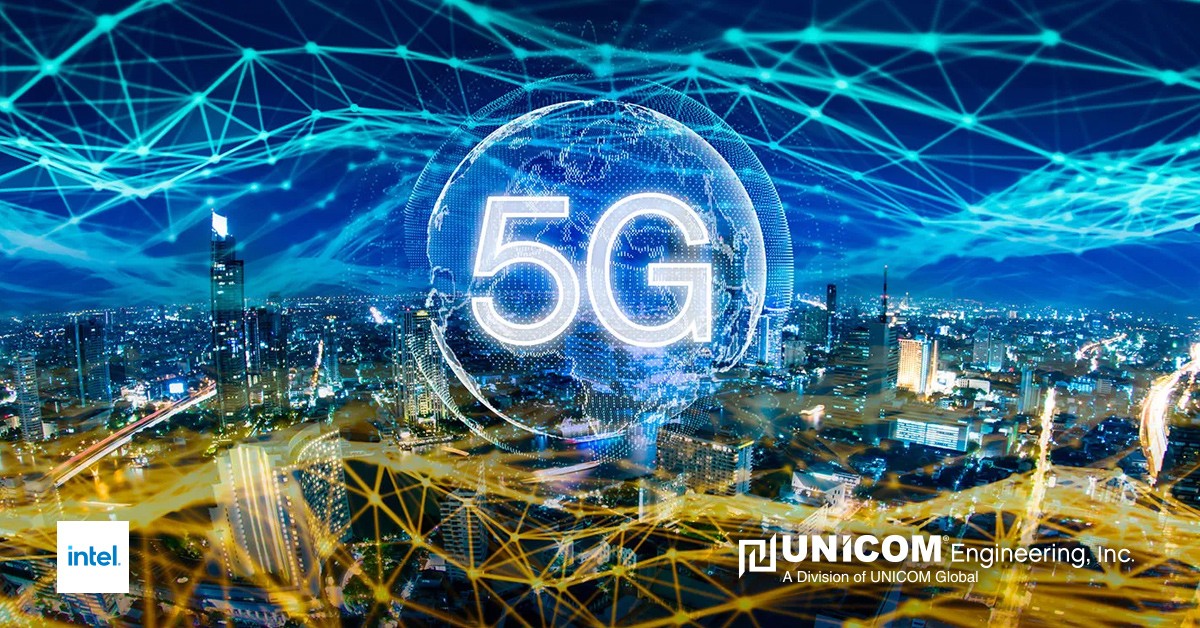Various new and exciting digital experiences are emerging thanks to the unprecedented speed, capacity, and connectivity of 5G wireless technology. But as5G data traffic rises, organizations seek ways to balance performance with power consumption, costs, and carbon emissions.
Understanding these concerns, Intel has led the charge for years in performance and power management for 5G networks, helping drive the industry’s transition to a greener future without stifling innovation.
Intel’s Commitment to Energy Efficiency and Environmental Stewardship
Intel invests heavily in “green” innovation, from developing sustainable manufacturing practices to consistently delivering hardware and software innovations that improve performance and energy efficiency. Examples of Intel’s commitment to environmental stewardship include:
- Using 90% renewable electricity (See footnote 1) to ensure a lower carbon footprint
- Architecting accelerators into solutions that increase performance per watt
- Integrating built-in telemetry and power management control per-core frequency and power consumption
- Improving energy efficiency by 10X by 2030 for client and server CPUs (See footnote 2)
Sustainability is integrated into Intel’s strategy, which the above commitments and practices illustrate. The company’s recent 5G core performance and power efficiency announcements further testify to this.
Intel is Breaking New Ground for 5G Technology
Earlier this year, Intel announced its achievement of the industry’s first 1 Tbps performance for the 5G UPF workload with a single dual-socket server. Additionally, it announced that the new Intel Infrastructure Power Manager reference software with 4th Gen Intel Xeon Scalable processors delivered an average power savings of 30% while maintaining key performance metrics. (See footnote 3) The annual cost savings and reduction in carbon emissions that organizations stand to realize through these technologies are substantial.
Key Facts About the Intel Infrastructure Power Manager
The Intel Infrastructure Power Manager is a reference software that dynamically matches server power consumption to data traffic. It is designed for integration by 5G core network function software vendors, simplifying access to key capabilities of Intel Xeon Scalable processors, including power telemetry, granular power control states, and low-latency frequency change. It can enable immediate power savings, helping organizations reduce operational expenses and significantly advance their sustainability goals.
The reference software was made available for validation by 5G core network function software vendors earlier this year. Additional power management capabilities and support for the control plane are on the product roadmap for future releases.
Partner with UNICOM Engineering to Optimize the Performance and Efficiency of Your 5G Technology Solution
5G data traffic is expected to grow enormously over the next decade, fueled by an ongoing proliferation of mobile devices, a greater prevalence of cloud services and Edge Computing, and continued adoption of AR/VR applications, among other trends. But as sustainability becomes a growing concern among organizations worldwide, new 5G technology solutions will be scrutinized for their performance and energy efficiency. Intel’s industry-leading technologies directly address these concerns.
UNICOM Engineering is proud to be an Intel Titanium Level OEM partner. Our team is deeply experienced in assisting innovative technology solution providers with optimizing the performance and efficiency of their solutions with the latest Intel technologies. Our relationships with Intel’s product manufacturing and engineering teams ensure our customers receive unparalleled access to best-in-class solutions that meet their specifications.
To learn more about how we can help you bring your solution to market and help you meet your sustainability goals, visit our website to schedule a consultation today.
Footnotes
- Intel, 2022. “Corporate Responsibility Report.” http://csrreportbuilder.intel.com/pdfbuilder/pdfs/CSR-2021-22-Full-Report.pdf
- Intel, 2022. “Corporate Responsibility Report.” http://csrreportbuilder.intel.com/pdfbuilder/pdfs/CSR-2021-22-Full-Report.pdf 3. Tested by Intel as of 01/26/2
- 1-node, 2x Intel(R) Xeon(R) Gold 6438N CPU, 32 cores, HT On, Turbo Off, Total Memory 512GB (16x32GB DDR5 4800 MT/s [4000 MT/s]), BIOS EGSDCRB1.SYS.0090.D03.2210040200, microcode 0x2b0000c0, 2x Intel E810-2CQDA2 (CVL, Chapman Beach, Total – 4x100G ports), 1x 223.6G INTEL SSDSC2KB240G8, 1x 745.2G INTEL SSDSC2BA800G3, Ubuntu 22.04 LTS, 5.15.0-27-generic, GCC 7.5.0, DPDK 22.11
